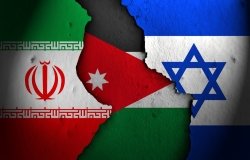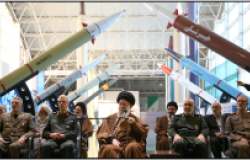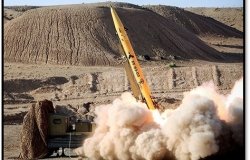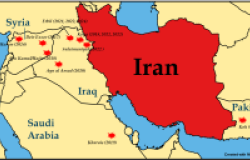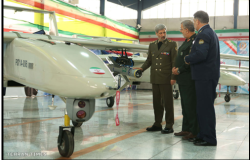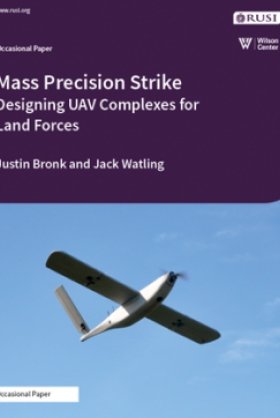Roadmaps to NATO Accession: Preparing for Membership
Chris Donnelly and Jeffrey Simon
Overview
Summary of the meeting with Chris Donnelly, Central and East European Advisor to the Secretary General of NATO, and Jeffrey Simon, Senior Fellow, Institute for National Strategic Studies, National Defense University.
Jeffrey Simon and Chris Donnelly addressed specific challenges facing NATO now and in the immediate future, and the impact of those problems on the enlargement process. Donnelly stressed that over the past ten years NATO has evolved from a purely defense organization into a security organization, taking on wider and larger tasks and challenges. But NATO's primary problem, and one that cannot be ignored, is that its structure and organization have not evolved to effectively accommodate these changes.
While noting that NATO and its members still have not taken any hard and fast decisions on further enlargement as NATO approaches its November 2002 summit in Prague, both speakers argued that NATO's internal and institutional problems should not be considered acceptable reasons for not enlarging. Rather, better efforts should be made to pinpoint areas in which the aspirant countries can better prepare for membership and on how NATO can internally adjust to these changes. In short, more focus needs to be directed towards how NATO structurally and organizationally can be adjusted to accommodate further enlargement and its wider role rather than on which countries ought to be admitted and when.
Both speakers emphasized that they did not see Russia as a barrier to further NATO enlargement. On this issue, Russia seems to be divided into two camps: President Putin and his supporters, who now have the upper-hand and who believe NATO is no longer a primary threat and are concerned only that NATO not become a barrier to Russian policy and basic interests; and the more traditional Russian political and military establishment, which still views NATO as a problem and a threat.
Simon emphasized that the objective of NATO always has been to support the evolution of a Europe whole and free. NATO policy should not create new dividing lines in Europe. This is why, when nine countries were not admitted in the last round of enlargement, programs such as the Partnership for Peace and the Membership Action Plan (MAP) were energized to enhance partnerships with those nations and to give them a sense of inclusion.
Simon contends that the MAP is an excellent way to measure the capacities of each country and to structure the enlargement process. Experience with the first three new NATO countries (the Czech Republic, Hungary and Poland) since admission in 1999 has demonstrated that there has been a large divergence between what a country says it can do and what the country can actually deliver. Emphasis, since 1999, has been on addressing many of these discrepancies by developing the new members' military capabilities so that they can be effectively integrated within alliance structures and activities.
Simon observed that the performance of the three newest member states has not been good and this relatively poor performance has created a problem of credibility that will work to the detriment of the aspirant states. He lists seven specific areas of deficiencies within these states, including: force planning inadequacies; budgetary constraints; restructuring of military personnel; constitutional and legal system inadequacies; national security concepts, defense concepts, and military doctrines; defense planning complications; and declining public support for the military. The fact that all nine of the current aspirant countries are far weaker than any of the three new members highlights the importance of the MAP process and the need for more work to be done with these states before granting them membership in the organization.
Another important lesson to keep in mind, Simon emphasized, is that once new members are brought in, NATO loses leverage with those states, as their political will to make necessary political and military changes wanes once they are in the "club." It cannot be assumed, therefore, that the aspirant countries' performance will be as successful as anticipated.
Chris Donnelly stressed that NATO is merely a tool of the member countries, not an independent entity. Consequently, NATO headquarters in Brussels has less influence over the enlargement process than many realize. The states which wield the most influence within the organization on these issues, and those who must be convinced that further enlargement is a positive step, are the United States and, on the European continent, Germany.
NATO's primary focus should not be on who to admit or when, but on how better to prepare these countries and NATO itself for wider membership. From the European perspective, there are three main aspects to the enlargement process - political, military and administrative reform.
Politically, by and large, the enlargement process so far has been a success. In Donnelly's words, "the door to NATO remains open, but that door is on a moving train." The general mood in Europe is to favor a robust enlargement, primarily because Europeans see a direct benefit to having all of the countries in the same structure since it provides more security than leaving some countries out and creating new dividing lines. But, the real problem confronting NATO and the enlargement process is the gap between its antiquated structure and its new functions.
The military aspect of NATO enlargement is more complex. In the first round of enlargement, political issues were considered to be the most challenging and important, and it was assumed that the military problems would be easy to deal with after granting membership. However, the reverse turned out to be true. NATO runs better as a political alliance with the three new member countries, but the problems of military transformation were grossly underestimated.
Donnelly outlined that the military capacities of the nine aspirant member countries should be evaluated on the following three criteria: whether they have a necessary degree of self-defense, the ability to accept help from others, and the ability to send help to others. In this sense, it had been thought that an EU common defense system would be helpful but, Donnelly noted, this will not occur in the foreseeable future. Small armies from small countries cannot do much. What is needed is a combined force structure that allows for specialization, but this is still just a goal.
The administrative problems facing NATO are the least considered, but most serious, of the challenges. Here is where the gap between structure and function is most apparent. In essence, NATO has taken on additional tasks without receiving the necessary support or adopting the necessary organizational changes to conduct them. NATO and its staff are confronted with too many tasks and too much work. Yet, NATO's internal deficiencies should not be a reason for not enlarging. The member nations must address these issues now. The questions, "what will NATO's role be?" and "what function do members want NATO to have in the future?" are critical. On these issues, the views of the United States will be pivotal. Once these key questions are resolved, it will be vital to determine exactly how to restructure the alliance so that it can cope with these new roles and wider membership.
Hosted By

Global Europe Program
The Global Europe Program is focused on Europe’s capabilities, and how it engages on critical global issues. We investigate European approaches to critical global issues. We examine Europe’s relations with Russia and Eurasia, China and the Indo-Pacific, the Middle East and Africa. Our initiatives include “Ukraine in Europe” – an examination of what it will take to make Ukraine’s European future a reality. But we also examine the role of NATO, the European Union and the OSCE, Europe’s energy security, transatlantic trade disputes, and challenges to democracy. The Global Europe Program’s staff, scholars-in-residence, and Global Fellows participate in seminars, policy study groups, and international conferences to provide analytical recommendations to policy makers and the media. Read more
Thank you for your interest in this event. Please send any feedback or questions to our Events staff.


